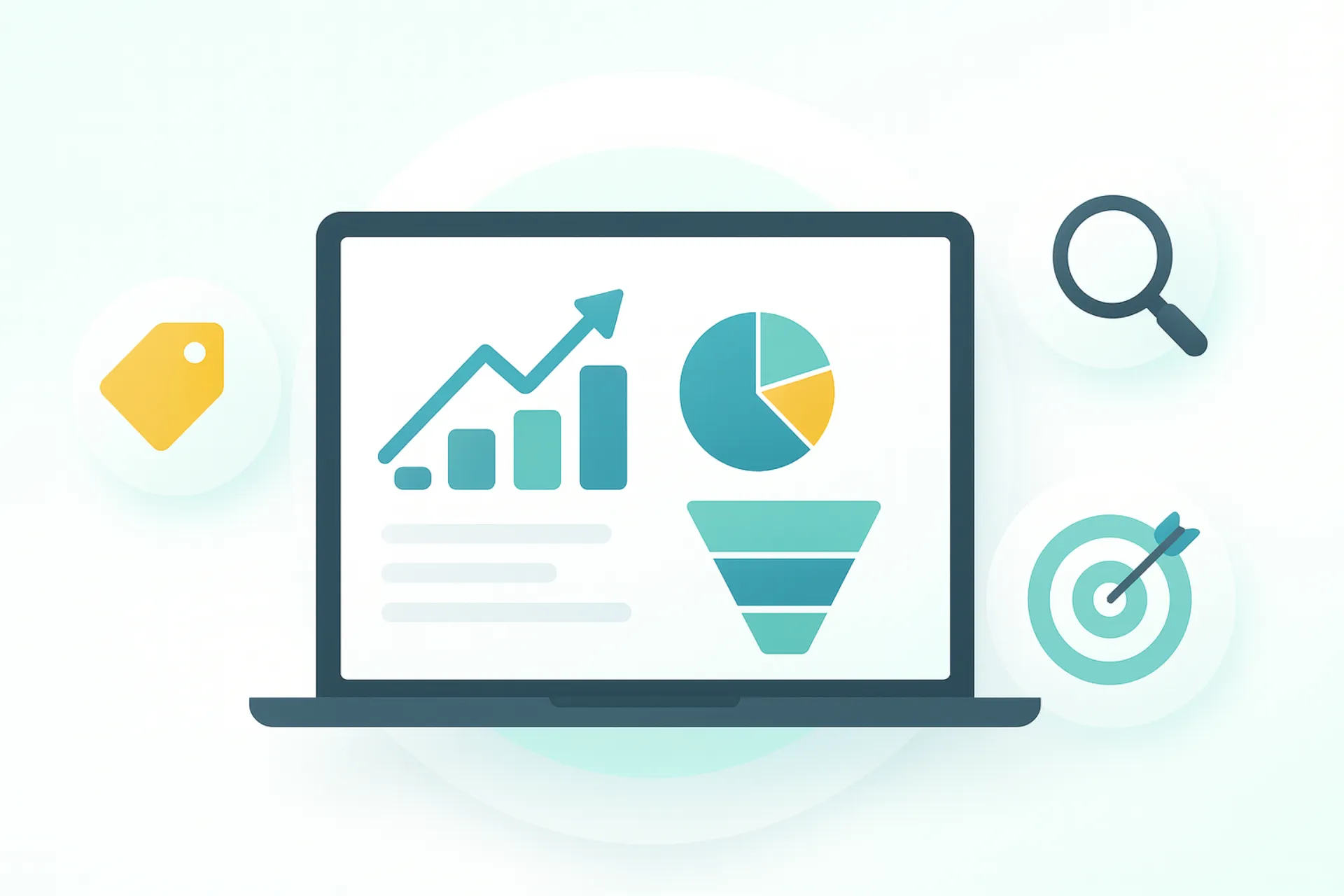Google Analytics is a free tool that offers digital marketers in-depth insights into how their website performs. It monitors everything, from website traffic to user behaviour. It also helps marketers track conversions and fine-tune their campaigns.
Yet, with all the data Google Analytics provides, knowing how to use it with Search Engine Optimisation (SEO) is essential for making informed decisions.
You can use this free tool to:
- Measure user engagement
- Optimise your SEO strategy
- And track digital campaigns
By leveraging its features, you can fine-tune campaigns and achieve more impactful results. This guide will cover the latest version, Google Analytics 4 (GA4), and explore how you can utilise it to accelerate your digital marketing strategy.
Key Features of Google Analytics for Digital Marketers
Google Analytics helps digital marketers understand how users engage with their website. The web giant’s other well-known tool, Google Search Console , enables you to assess search performance. Google Analytics, however, allows you to see how users interact with your site once they arrive.
Here’s how Google Analytics can help digital marketers:
- Monitor website traffic, page views, and user engagement in real-time. This enables you to identify which pages are most popular and refine your campaigns for better performance.
- Set up goals to track conversions, such as purchases, form submissions, or sign-ups. Measure your campaign performance and adjust strategies to improve ROI.
- Gain insights into audience demographics, including location, interests, and devices used. This allows you to tailor content and strategies for better engagement.
- Evaluate your marketing channels like organic search, paid ads, and social media. It then helps you change your strategy based on the performance data.
- Track user behaviour, identify drop-off points, and optimise for conversions. Utilise Google Analytics to enhance user experience and boost conversions.
Google Analytics aids digital marketers by providing data to improve online marketing results. By leveraging its features, you can turn data into actionable insights that fuel your marketing success.
Google Analytics 4 vs. Universal Analytics
Universal Analytics (UA) had been the industry standard for tracking website data for years. It provided valuable insights into sessions, pageviews, and user metrics. However, as user behaviour changed, Google Analytics 4 (GA4) offers a new, user-centric approach for tracking and analysis. This upgrade provides digital marketers with deeper insights and increased flexibility.
Here’s how GA4 differs from Universal Analytics and why it’s the future of website analytics:
User Metrics: Active Users vs Total Users
- Universal Analytics: Tracked Total Users and simplified the number of people who visit your site.
- GA4: Shifts to Active Users, focusing on those who engage meaningfully with your site. This gives a clearer picture of actual user engagement and behaviour.
Event-Based Tracking vs Session-Based Tracking
- GA4: Uses an event-based tracking model. This enables detailed insights into user actions, such as button clicks, video views, and form submissions.
- Universal Analytics: Relied on session-based tracking. It primarily focused on pageviews and sessions, which limited the depth of engagement data.
Bounce Rate: Engagement vs. Single-Page Sessions
- GA4: Replaces the traditional bounce rate with Engaged Sessions. This tracks users who engage meaningfully (e.g. spending 10+ seconds on a page or triggering events). This provides a more accurate measure of user interest.
- Universal Analytics: Counts a session as a bounce if a user views only one page, regardless of their time on the site.
Cross-Platform Tracking
- GA4: Is built for the modern web and tracks data across both web and app platforms, offering a unified view of user interactions across devices.
- Universal Analytics: Designed primarily for websites. It requires additional setup to track mobile apps.
Predictive Insights & Machine Learning
- GA4: Uses machine learning to offer predictive insights. It can forecast potential revenue and spot users who may be at risk. These features enable marketers to make proactive, data-driven decisions.
- Universal Analytics: Lacked these advanced, automated analytics capabilities.
Why GA4 Replaces Universal Analytics
Google Analytics 4 is the new standard because it’s built for future-proofing analytics. As user behaviour gets more dynamic across platforms, GA4 offers tools to track these complex interactions. With GA4, digital marketers gain detailed insights, predictive analytics, and better user tracking. This makes it a key tool for optimising marketing strategies today.
Boost SEO Results with Google Analytics
Google Analytics is a powerful tool for digital marketers. It helps optimise website performance, increase conversions, and understand user behaviour. However, setting it up properly and aligning it with your marketing strategies can be challenging. That’s where our expertise comes in.
At b4b, we help businesses unlock the full potential of Google Analytics. Whether you want to integrate GA4 or optimise your current setup, our team will guide you every step of the way.
By leveraging insights from Google Analytics, we can help:
- Refine your strategies
- Improve your campaigns
- And drive better results
Don’t let valuable data go underused. Make Google Analytics a key part of your marketing strategy and make smarter, data-driven decisions today.
Call 01202 684400 or reach out to b4b’s SEO team to unlock expert insights and raise your digital marketing efforts.











